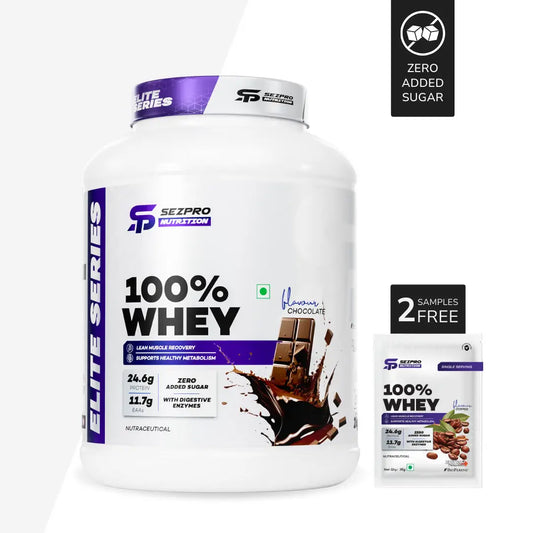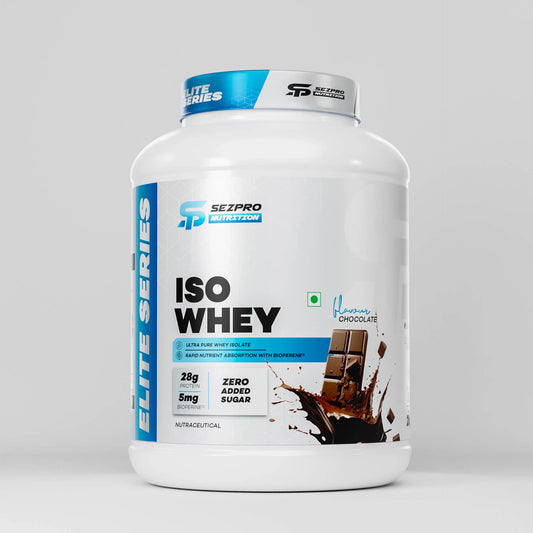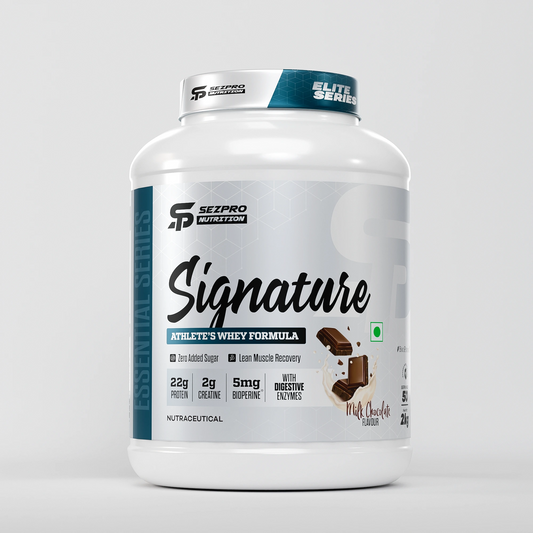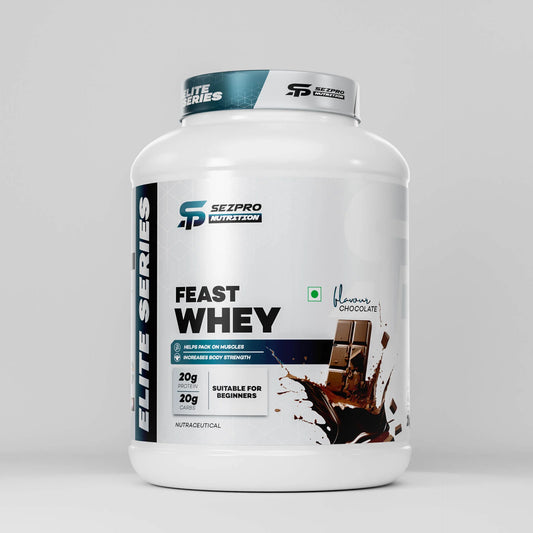Whey Protein
What is Whey Protein?
Whey protein, a premium protein is obtained from milk throughout the cheese production process.. All of the whey products contain essential amino acids that are important for the body. It helps in rapid absorption and supports muscle growth, making it a popular choice among athletes and bodybuilders for post-workout recovery. Whey protein powders are formulated to contribute to overall health, potentially affecting blood pressure, blood sugar control, and immune function.
Whey protein supplements are one of the best protein powders for men and women fascinated by bodybuilding, enhancing muscle growth and developing better resistance. Compared to other protein sources, whey protein has better bioavailability, solubility and concentration of branched chain amino acids (BCAA).
Types Of Whey Protein
Whey protein products are obtained from milk during the cheese-making process, and they mainly consist of three types:
Whey Protein Concentrate (WPC): It contains 60-80% of pure protein along with fat, carbs and minerals and goes through the least stages of purification and filtration. This results in one of the best whey proteins for beginners.
Whey Protein Isolate(WPI): It is known to be the purest form of whey and removes most of the lipid and lactose that results in a higher protein concentration. Whey protein Isolate is an excellent choice for those seeking a protein supplement with minimum carbs and fats.
Whey Protein Hydrolysate (WPH): Characterised by its pre-digested form, this variant has been subjected to partial hydrolysis. Whey protein hydrolysate helps in better absorption and digestion by breaking the protein into smaller peptides.
Selecting the correct type of whey protein depends on people's preferences, dietary needs, and fitness goals. Some may prefer the added nutrients in whey protein concentrate while others may consider whey protein isolate for high protein content. Whey Hydrolysate is suitable for rapid absorption because of its pre-digesting nature. These whey protein types come in various forms, such as powders, shakes, bars and even as an ingredient in certain food products.
Benefits of Whey Protein
Whey protein supplement offers various health benefits:
Muscle Building: Whey protein supplements are formulated with all essential Amino acids, especially leucine which plays a vital role in stimulating muscle protein synthesis. Whey products are beneficial for athletes and bodybuilders who are looking to build and maintain muscle mass. Whey supplements as the best whey protein for women as well as the whey protein facilitates muscle growth by enhancing the release of certain anabolic hormones that promotes the same.
Muscle Recovery: The whey protein powder is rich in both essential and Branched Chain Amino Acids (BCAAs) leading to a faster muscle recovery post-workout.
Weight Loss: Whey protein supplements contribute to high-protein diets which promote feelings of fullness and satiety. Consuming whey products reduces overall calorie intake and supports fat loss while preserving lean Muscle Mass. When combined with exercise leads to an overall healthy body. Some women also feel hunger pangs due to PMS, here protein powders come in handy and prove to be satiating. This in all promotes a holistic well being.
Nutrient-Rich: Whey protein concentrate contains several bioactive compounds, including immunoglobulins and lactoferrin, which contribute to overall health and immune function making it beneficial for general well-being.
Antioxidant/ Anti inflammatory Properties: Whey protein is formulated with peptides with antioxidant properties that help to fight against oxidative stress and inflammation in the body. It increases the production of Glutathione (a powerful antioxidant). This can contribute to improving overall health and potentially reduce the risk of chronic disease.
Improved Immune Function: Whey protein supplements contain immunoglobulins and lactoferrin may enhance the immune system. Some of the immunoglobulins present in the protein are IgA, IgG and IgM . Consistent consumption of whey proteins may provide additional support against infection and illnesses.
Blood Sugar and Pressure Control: Whey protein supplements contribute to blood sugar control that can benefit people with or at risk of type 2 diabetes. They also lower the blood pressure, which is one of the most common factors for heart disease.
Boosts Bone Health: Whey proteins stimulate growth of bone cells by increasing bone mineral density. Good bone health is crucial for a healthy athletic body, and these proteins help decrease the risk of injuries and stress fractures.
Other Health Benefits: Other than improving athletic performance, whey proteins also help in regulating blood cholesterol levels. They increase High Density Lipoprotein (HDL) or “good cholesterol” and reduce Low Density Lipoprotein (LDL) or “bad cholesterol.” Studies have also revealed Anti cancer properties and also hastens the recovery process post surgeries. However, If you suffer from any of the conditions above you should not consume whey protein as treatment before consulting your health care professional.
When and How to Consume Whey Protein
Post-Workout:
When: Consuming whey powder within 30 minutes to an hour after your workout session can help give nutrients to your body that supports muscle recovery and growth.
How: Mix one scoop of whey protein powder with water, milk or your preferred drink. This mixture of whey powder can help replenish amino acids and help in muscle repair.
As a Snack or Meal Replacement:
When: Whey protein can be consumed between meals as a snack or as a meal replacement whenever you need a convenient source of protein.
How: Mix or blend your whey powder with water, milk or a smoothie. You can also consume whey protein with oatmeal, yoghurt or protein bars for added nutrition.
Before Exercise:
When: You can also consume your whey protein before workout which provides essential amino acids for energy and supports muscle protein synthesis during your performance.
How: Mix whey Protein with water or milk and consume it 30-40 minutes before your workout session.
Before Bed:
When: Consuming whey protein supplement before bedtime can provide a slow-release of amino acids during the night. It also supports muscle repair and prevents muscle breakdown.
How: Blend your whey Protein with water, milk or any other beverage and consume it as a part of your evening routine.
General Daily Intake:
When: Whey products can be consumed at any time of the day that fulfils your daily protein requirement.
How: Make a mixture of your whey protein powder with water, milk or any drink of your choice to increase protein intake throughout the day.
Side Effects of Whey Protein
There are various side effects of whey protein and some of them are mentioned below:
Digestive Issues: Whey protein is formulated with lactose and people with lactose intolerance may undergo digestive discomfort, such as bloating and gas. Considering whey protein isolate can be a suitable alternative as they contain low lactose content.
Allergic Reactions: Whey products are derived from milk, and people who are allergic to milk should avoid whey protein or choose alternative protein sources to prevent allergic reactions.
Kidney Issues: Consuming high amounts of protein including whey protein may increase the risk for people with pre-existing kidney conditions. It's recommended for those with kidney issues to consult with a healthcare professional before taking whey protein into their diet. For those without health issues, follow the dosage instructions provided on the packaging.
Unintended Weight Gain: Consuming excessive whey protein without considering overall caloric intake may lead to excessive weight gain.
Overconsumption: Consuming high whey protein in a short period may lead to digestive discomfort, including nausea and diarrhoea, so following recommended serving sizes is necessary.
What are some of the precautions that should be taken while consuming and choosing your Whey protein?
Allergies: Check the packaging to make sure you are not allergic to something. In case of lactose allergy, contact your healthcare professional before consumption.
Medications: Certain medications can react with the whey protein. So, in case you are on some medications, consult a healthcare professional.
Authenticity: Make sure that all the ingredients added in your product are authentic.
Certifications: Check for certifications when buying any product, avoid using third party or fake products.
Dosage and Type: Check the ingredients list to choose the right type of whey protein in accordance with your body and health.
Individual Compatibility: Monitor your body. In case of discomfort or unfavourable symptoms discontinue immediately and contact your physician.
What sets apart whey protein concentrate from Whey Protein Isolate?
The two essential types of whey proteins are whey protein concentrate and whey protein isolate and the basic difference between them is their protein content and processing. Whey protein concentrate contains much less protein (70-80%) and retains more natural fats, lactose and beneficial nutrients. Meanwhile, whey protein isolate undergoes additional processing to achieve higher protein concentration (90%) by removing fats and lactose.
Where to Buy Whey Protein?
SezPro Nutrition is one of the best choices for buying affordable and authentic protein supplements. Our SezPro brand offers a variety of whey protein supplements for athletes and bodybuilders looking to buy whey products. Our whey protein powders come in 3 different types with various flavours making it an ideal choice for people who are fitness freaks. You'll also find fantastic deals and discounts on our whey products.
So, if you want to buy the best protein supplement visit our website SezPro Nutrition.
Which is the Best Whey Protein Supplement?
Here are some of the best whey protein supplements that offers the best quality, manufacturing standard and results:
SezPro Nutrition 100% Whey Protein.
This 100% whey protein supplement offers 24.6g of protein and 11.7g of EAAs in each of 28 servings. It is ideal for fitness lovers as it supports lean muscle recovery and also supports healthy metabolism.
SezPro Nutrition ISO Whey Protein.
This whey product provides 28g of protein and 5mg of bioperine per 28 servings with zero added sugar and no fillers or additives. It offers ultra-pure whey isolate and helps in rapid nutrient absorption with bioperine.
SezPro Nutrition Feast WheyProtein.
It offers 20g of protein and 20g of carbs in each of the 20 servings, making it suitable for beginners. It comes in different flavours, helps pack on muscles, and increases body strength.
FAQs About Whey Protein.
Is it Safe to Consume Whey Protein Supplements?
Consuming whey protein is generally safe, and purchasing it from an authentic source is recommended. Whey protein supplements need to be free from any additives or harmful ingredients like sugar to deliver the best results. Be aware of such ingredients before buying any whey supplement.
When is the optimal time to intake Whey Protein?
You can consume whey protein at any time of the day. However, people who are fitness freaks and are involved in sports or exercise should prefer taking it after their workout sessions.
Is Whey Protein good for Health?
Whey protein helps support muscle growth and repair, aids in weight loss and improves overall health by controlling blood sugar and cardiovascular health, which makes it one of the best protein sources.
Are there any adverse effects associated with the consumption of Whey Protein?
Whey protein supplements can cause digestive issues such as bloating, gas and diarrhoea, and people with lactose intolerance should avoid whey proteins with high lactose content.
Can I take Whey Protein with other Supplements?
Yes, you can take whey protein with other supplements like Creatine and beta-alanine to support athletic performance and muscle building. However, consult a healthcare consultant to avoid any allergic reactions.




